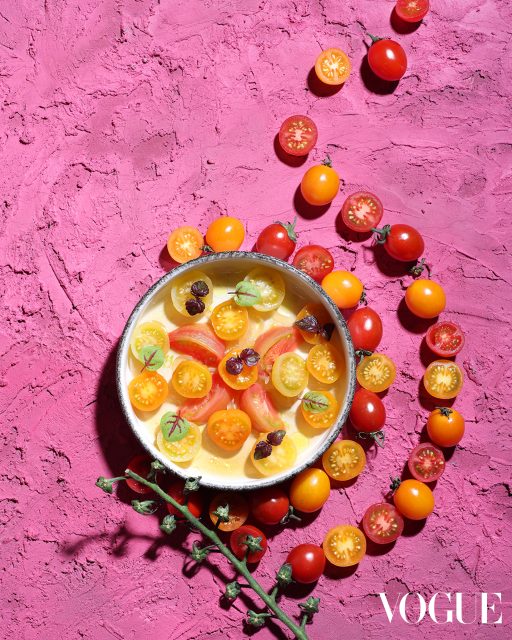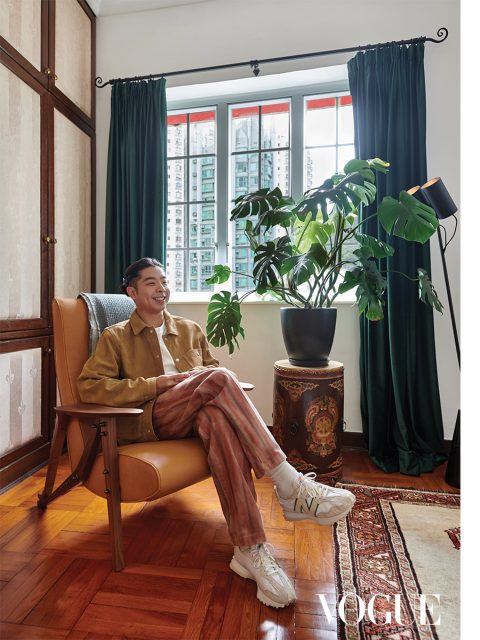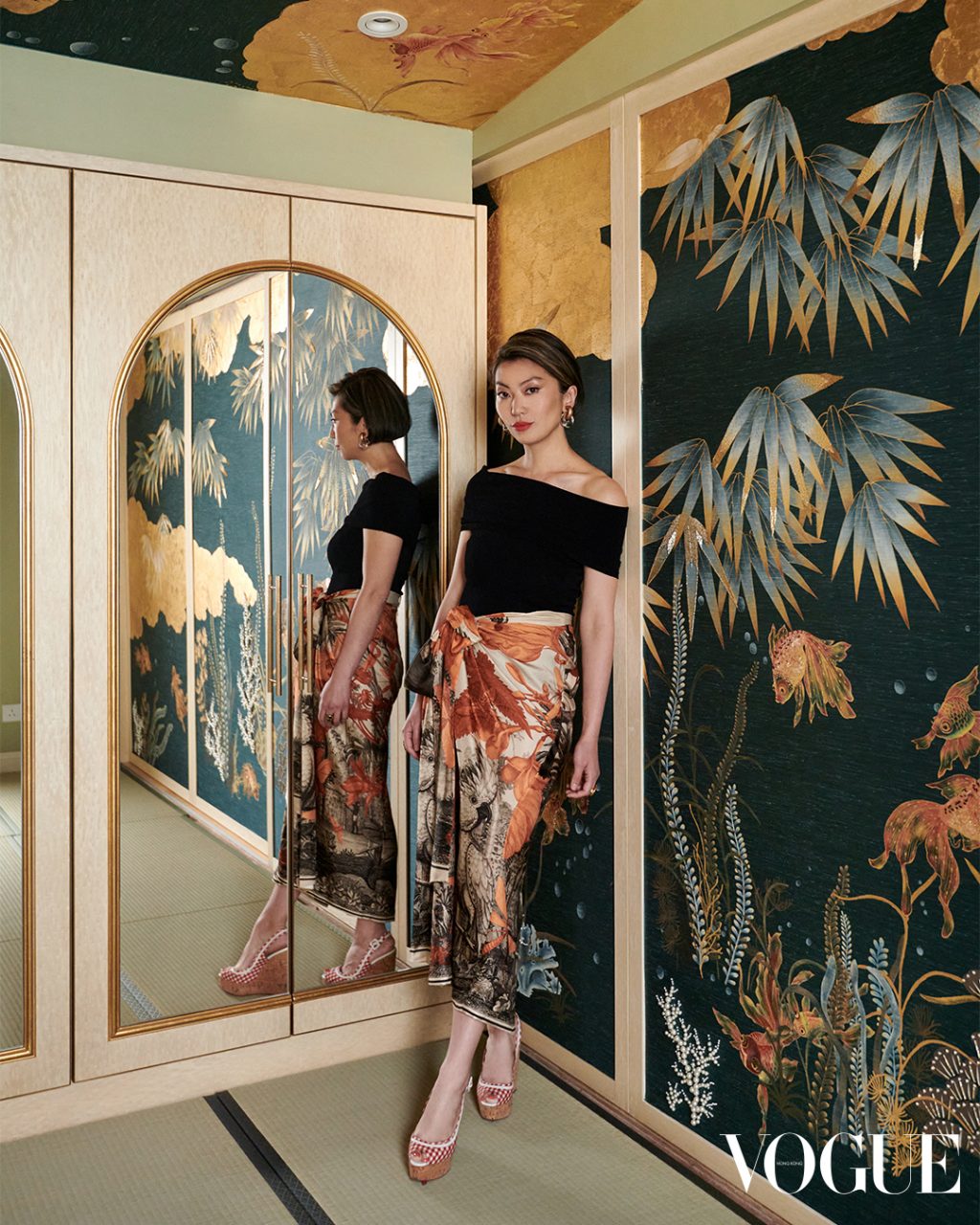It can be easy to forget you’re in Hong Kong when stepping into Agnes Mu’s bright and airy Mount Davis apartment. As the founder of Roji, a sparkling izakaya nestled in the heart of Lan Kwai Fong, the restaurateur appreciates the distance from the city’s bustling centre and the importance of tranquility in this sanctuary she calls home. Floor-to-ceiling glass sliding doors give way to a spacious balcony – one of Agnes’ favourite spaces in her home. “I never get tired of watching the wonderful unobstructed ocean views and listening to the sound of the waves.”
The L-shaped Timothy Oulton cloud couch is the living room centrepiece
Photo: Natalie Dunn
The budding restaurateur has always had a love for nature. Her favourite material is wood, which features prominently across her home and her restaurant. “It gives a unique combination of aesthetic appeal and peerless structural integrity that other materials just can’t reflect,” she muses. But Agnes is incredibly mindful about where and how she sources each piece of furniture, wooden or otherwise. “Sustainability is extremely important to me, I am careful about everything I buy and the footprint it will leave. I truly believe that being chic and socially conscious are not mutually exclusive.” The vast majority of her furniture is upcycled and has been ethically sourced: the coffee table, TV cabinet and dining table are all made from upcycled wood by Thomas Bina, who is known for pioneering sustainability in design.
Another mindful purchase in the living space is the L-shaped, Timothy Oulton cloud couch that was hand-dyed with 100% natural vegetable dye in a village in China and crafted with upcycled timber. The process took 1-2 months to create with each couch segment slightly different in shape. “The more you wash it the more the colours fade away. It’s certainly not perfect, but it’s the comfiest couch ever,” declares Agnes. The vast plushiness of the couch is juxtaposed with refined French accents of sculptural vases and candles and complemented by the rich layers of material that surround it. “I use velvet, linen, jute, cotton… It helps decorate the home.” The ensemble of rustic fabrics add dynamic texture, while an eclectic arrangement of art brings bursts of personality to the space, with each piece carrying personal meaning to Agnes.
The Timothy Oulton cloud couch, described by Agnes as the "comfiest couch ever"
Photo: Natalie Dunn
“This photograph from the Montepulciano landscape in Tuscany was bought by my dad from an independent gallery while we were travelling there when I was a kid. I used to go to Tuscany together with my parents so it’s kind of like having my family here”. Her love for collecting art was inherited from her father, and Agnes notes that this appreciation was in part due to visiting a number of museums and exhibitions since she was young. That being said, Agnes does not collect art based on artist’s prestige, nor does she follow any current day ‘trends’. “After all”, she says, “art is subjective right?”. As almost proof of this, Agnes leads me to a large, tonal landscape piece by Spindler Marqueterie d’Art – composed entirely of wood. Although a difficult medium to work with, she couldn’t pass up the opportunity to get a stunning artwork made from her favourite material. “I just had to get a wooden piece of art”, she laughs. Above her dining table is a large light fixture that can be transformed and manipulated by the user, and is made up of recycled wood by designer Thomas Bina, once more echoing the narrative of sustainability that Agnes lives by.

The reading corner in Agnes' living room, with a wooden landscape by Spindler Marqueterie d'Art
Photo: Natalie Dunn

The dining table and light fixture were created by sustainable designer Thomas Bina
Photo: Natalie Dunn
This sentiment is also embedded in her restaurant Roji, where most of the furniture is recycled and refurbished. “I had a very clear design concept in mind. I wanted to recycle furniture as much as I could while keeping it timeless, modern and minimalist.” And just like at Roji, her home is also dotted with plants, “The greenery lifts my spirits and makes me feel happier”, she explains.

Agnes loves to be surrounded by greenery both in her home and at her restaurant, Roji
Photo: Natalie Dunn
The warm, clean aesthetic of both her home and Roji reflect Agnes’ desire for clean, thoughtful living, while her home is a haven of peace amidst the chaos of Lan Kwai Fong and the hectic schedule of running a restaurant in Hong Kong. “My home is a sanctuary where I can disconnect from the busy city life”.
Editor
Carina FischerCredit
Lead image: Natalie Dunn















